What to look for in diabetes?
I'm a diabetic too. I'll answer.
1,Strict dietary control
This strict control of the diet is mainly to control the amount of staple food (I myself 300 grams of staple food a day, is cooked weight), vegetables can be eaten more (note: potatoes, yams, taro, pumpkin, lotus root, etc. is a staple food, not vegetables!) Meat should be in moderation, about three taels a day, and 1-2 eggs.
2. Exercise.
Myself, I just go for a brisk walk for 30-40 minutes after every meal, half an hour from when I stop eating.
3,Keep a good mood
I've had personal experience myself that if I'm particularly angry and in a bad mood, my blood sugar can be out of whack.
4,Ensure good sleep
Diabetics must not stay up late; adequate and good sleep is very important for blood sugar control!
5. Reduce alcohol consumption
Alcohol is stimulate insulin secretion, which is also a kind of overdraft on the function of the pancreas, blood sugar will generally be reduced after drinking, but regular drinking blood sugar will become worse and worse!
Daily life in the first place should pay attention to the "eat", the staple food coarse and fine with the intake of adequate protein, moderate labor intensity every day should eat two two lean meat, an egg and 250 ml of milk. Reduce salt and oil, all the time with vegetables, varieties of 3 to 5 kinds, not less than 500 grams per day. Fruit depends on blood sugar control, eat in moderation. The second attention should be "movement", combined with their own conditions, safety first, step by step as the principle, more than 5 times a week exercise, jogging, swimming, cycling, tai chi and other aerobic exercise, in order to cardiac tolerance, do not feel fatigue to the extent that the daily outdoor activities in a small inches or so. The third thing to pay attention to is "sugar", learn to use the blood glucose meter, self-monitoring, improve the level of sugar control. The fourth attention is "medicine", according to the level of blood glucose control, under the guidance of specialists, the use of hypoglycemic drugs. The fifth attention is 'learning', learning to understand the scientific knowledge of diabetes, and guide their own life, and implement into daily activities.
Hi, as an endocrinologist I am happy to answer this question. The range of what to look out for in diabetes is so wide. I should say that you have to pay attention to all aspects that are conducive to maintaining good health. For people with diabetes, I think the following aspects are all important to pay attention to. First: a healthy lifestyle, especially in terms of diet. The first is the requirement of a low-carbon diet, that is, foods containing much starch should be eaten less, and the proportion of calories contained in carbohydrates in a day should not exceed 50%. A small number of meals can be taken, the total amount of control, variety, with reasonable, vegetable-based, appropriate fish and meat, the result is to maintain a moderate weight. The diet should also take into account the prevention and treatment of hypertension, hyperlipidemia and hyperuricemia. Recommended Mediterranean diet. Secondly, pay attention to the monitoring of blood sugar: some people have diabetes, long-term not to monitor blood sugar, that there are no symptoms, it is estimated that blood sugar is not high. Diabetes is a chronic disease, and over time, the large and small blood vessels throughout the body will be affected, and the walls of the blood vessels will have an inflammatory reaction. The blood vessels will be damaged and narrowed, which will affect the blood supply of the whole body. The third point: diabetes inevitably requires drug treatment, medication should be standardized, do not arbitrarily increase or decrease the amount, to master the meal, medicine time, should be timed, fixed, fixed meals, regular medication. In the course of treatment, also pay attention to observe the possible adverse reactions of hypoglycemic drugs, timely communication with the doctor. If hunger, panic and sweating occur, it may be a hypoglycemic reaction, and the condition can be further clarified by checking blood glucose immediately. If unconditional advanced food or oral sugar water, try to avoid hypoglycemia during the course of the disease. The fourth point: pay attention to the occurrence of chronic complications. Diabetes over time will inevitably have chronic complications, you need to understand the symptoms of these complications may be manifested, such as increased foam in the urine, vision loss, hands and feet, numbness, numbness, tightness in the chest, dizziness, etc., if there are complications need to go to the appropriate department of the clinic, not only to control blood glucose. The fifth point: to maintain an optimistic and positive attitude, maintain emotional stability, avoid overwork and emotional fluctuations. Life should be regular, do not stay up all night, accompanied by cardiovascular disease patients to carry the necessary first aid drugs, in case of accident. In fact, there is still a lot to pay attention to, in the final analysis is to accept and then find ways to solve.
Diabetic patients should pay attention to the diet, dietary intake should not be excessive, if the diet is excessive, it will cause blood glucose and blood lipid elevation. For foods that raise blood sugar quickly, the total amount should be controlled, such as rice, steamed buns, glutinous rice, pumpkin, lychee, pineapple, jujube, candies, drinks and so on. Eat grains and cereals often, and eat more vegetables such as cabbage, cucumber, celery, eggplant, spinach and tomatoes. Diversify the types of diet.
In terms of exercise, it is necessary to insist on reasonable exercise, at least 30 minutes a day, and be able to exercise five days a week. When you go out to participate in sports, it is best to travel with a partner, bring candy, cookies, drinks and other sweets to prevent hypoglycemia, but also to bring a first aid card, which clearly write the name, contact information, medical condition, etc., in case of hypoglycemia can be timely treatment.
It is important to insist on annual physical examination and regular screening for complications, such as checking blood lipids, hemoglobin, blood pressure, electrocardiogram, urine microalbumin, blood uric acid, bone density, etc., as well as ophthalmology and neurology examination, etc. Frequently checking the soles of the feet to see if there are any wounds, and if there are any sensory abnormalities in the feet.
Live a regular life, don't overwork, go to bed early and get up early, and keep your mood cheerful and calm.
Sugar control on the road, in addition to pay attention to a reasonable diet, proper exercise, mood regulation, monitoring of blood sugar, should also pay attention to some small changes in the body, if the following 19 kinds of symptoms, may be a sign of complications, have to pay attention to Oh!
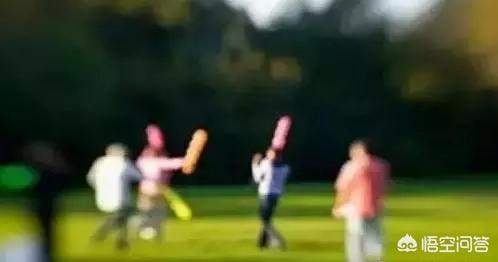
1. Thirst and dry throat:It suggests elevated blood glucose and increased blood viscosity. Some people have no thirst symptoms despite increased blood glucose due to insensitivity of the thirst center.
2. Blurred vision:Blurred vision can be the result of lack of sleep or overuse of the eyes, or it can indicate an eye condition.
3. The field of view turns red:Sudden reddening of the visual field or reddish staining of the optic suggests a fundus hemorrhage.

4. Increased urine foam:Sugar lovers who have proteinuria or kidney impairment may experience increased urine foam.
5. Itchy or dry skin:If the complication is mild, it may just be itchy skin, or dry skin that lacks moisture. If the complications are more severe, there may be intense itching of the skin, or even cracking of the skin. These may indicate a lesion of the autonomic nerves.6. Sweating is not normal:So-called abnormal sweating is specifically characterized by too little sweating, too much sweating, or hardly any sweating at all. All of these conditions may indicate abnormalities in the sweating area and damage to autonomic function.

7. Easily tired, weak limbs, poor mental state:This condition is associated with impeded glucose functioning in the body, as well as a buildup of metabolites.
8. Swelling of the circumference:Suggests that blood glucose is lowered too quickly, causing intracellular edema.
9. Cold hands and feet, and pale or purple skin on the hands and feet:This is an indication of ischemia in the organism, and in severe cases gangrene of the foot may occur.

10. Chest tightness and discomfort in the precordial area:The presence of this symptom may be associated with cardiovascular disease.
11. Numbness of the limbs and lack of mobility:This is manifested in slow movements and poor sensation when dressing, putting on socks or gloves, and may be a hint of neuropathy.
12. Nausea and vomiting are often present:If nausea and vomiting are frequent, this suggests that ketoacidosis may be occurring

13. Loose teeth:as a result of alveolar bone loss or periodontitis infection.
14. Skin blisters on the hands and feet as well as on the lumbar and abdominal regions:The blisters of sugar lovers are similar to the usual burns, often distributed in the hands, feet, and waist and abdomen, and elevated blood sugar caused by increased blood osmolality and the increase in capillary permeability has a certain relationship.
15. Cerebrovascular accidents:The patient suddenly feels dizziness and headache, salivation at the corners of the mouth, tightness on one side of the face, numbness on the opposite side, falling to the ground with chopsticks in hand, and difficulty in supporting the body, which is a precursor of cerebrovascular accident or an indication of cerebral infarction.

16. Hypertension:Hypertension is one of the most common concomitant symptoms in glucose patients and should be taken seriously.
17. Abdominal pain, diarrhea or constipation:These gastrointestinal discomforts are likely to suggest a dysfunctional or impaired intestinal tract in a sugar patient, and may also be the result of medications taken.
18. Positive urine protein:Suggests a decline in renal tubular function. Persistent positive urine protein predicts that diabetic nephropathy has occurred.
19. Hypogonadism and impotence:The presence of this condition may be indicative of microvascular lesions or autonomic nerve damage in glucose patients.

It is important to note that not all symptoms will cause complications, some are just discomfort, but it is important for glucose users to take precautions and go to the hospital for checkups if necessary.
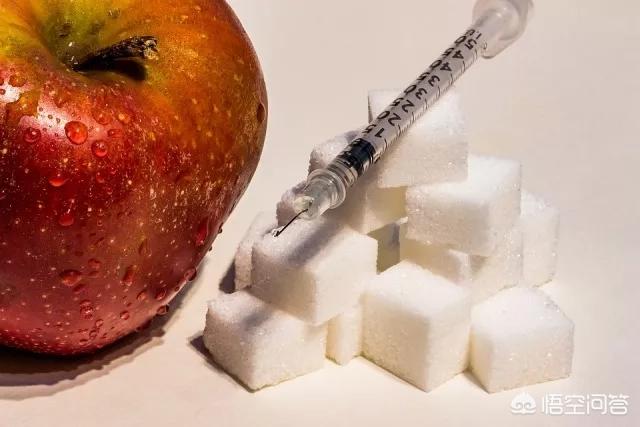
There is a certain correlation between the health literacy of diabetic patients and health outcomes, and improving the level of health literacy for individual diabetes prevention and control can not only safeguard the physical quality of diabetic patients, but also be of great significance in reducing the economic burden of disease in society.
Especially for the elderly, the elderly function is reduced, the ability to perceive hypoglycemia is reduced, skeletal muscles and other organs degenerate, once a fracture occurs due to a fall caused by hypoglycemia due to strict control of blood glucose, the pain and trauma suffered by a series of social problems caused by a series of consequences are more serious. Hypoglycemia can also induce cardiovascular disease (stroke, angina, heart attack) . Attention should also be paid to the impact of side effects, interactions, changes in drug metabolism. Regularly check renal filtration function, liver function, etc.
If a diabetic patient experiences frequent symptoms of hypoglycemia during treatment with the medication, he or she should seek medical attention in order to adjust the medication regimen.
Understanding some of the common problems that people with diabetes face in their daily lives can help them manage their condition as well as handle emergencies.
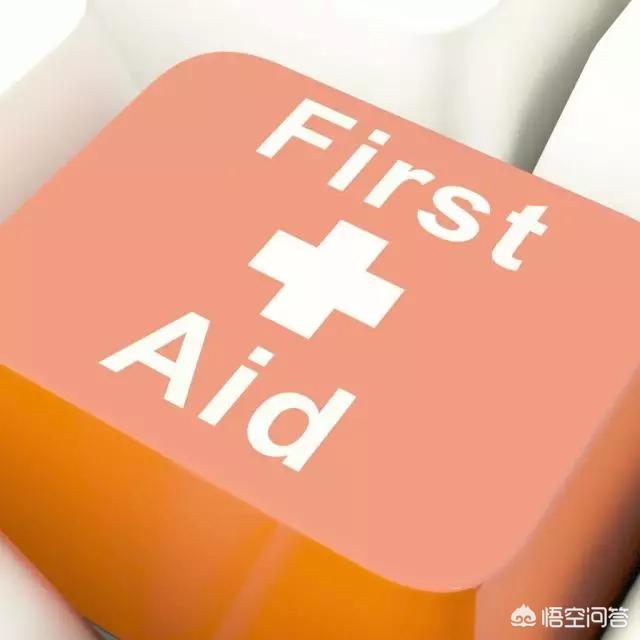
1.First aid in case of hypoglycemia
The possibility of hypoglycemia should be noted when a diabetic's blood glucose concentration plummets or falls below 3.9 mmol /L.
When a diabetic patient has slurred speech, headache, numbness and tingling sensation in the mouth and lips, cold sweat, rapid heartbeat, confusion or disorientation, weakness, hunger, nervousness, coma, and trembling there is a possibility of hypoglycemia. The following countermeasures should be taken when symptoms of hypoglycemia occur:
In conscious patients who exhibit only clinical symptoms such as cold sweat, pallor, panic, and involuntary tremors, immediately measure blood glucose with a glucometer, thePatients with blood glucose below 4.0 mmol /L are immediately given 15-20 g of sugary food., such as a half-listen of Coke, orange juice, two juice candies or five soda crackers to correct hypoglycemia immediately first.Also observe the patient for relief of hypoglycemic symptoms.Continue to measure blood glucose again after 20 minutes, if still ≤4.0mmol /L, then give 15- 20g of sugary food until the patient's blood glucose returns to normal.The patient's symptoms improve before giving appropriate food such as buns and bread to prevent the recurrence of hypoglycemia.
For adult patients who are delirious, have impaired consciousness, and cannot take the above sugary foods orallyImmediate subcutaneous or intramuscular injection of glucagon 1.0 mg by a relative or companion can be life-saving, but often leads to transient hyperglycemia, and can also cause nausea and even vomiting. Conditions should be taken immediately to a medical emergency and treated by a medical professional.

2.Diabetics traveling outside the home
caveat
Tell your fellow traveler about the condition and teach him about low blood sugar management;
Medical materials, snacks to deal with hypoglycemia, insulin injection devices and blood glucose monitors should be carried with you and not in your suitcase;
Insulin is properly stored in a cool place at a temperature of 4 to 25 degrees Celsius. The luggage compartments of airplanes can reach sub-zero temperatures, so do not place insulin in them or the crystallized insulin cannot be reused;
When traveling abroad and buying insulin, pay attention to whether the local insulin concentration is the same as the one you are using, and never make a mistake with the insulin concentration;
Stick to your daily diet and insulin injection routine and timing as much as possible. When meals are delayed for any reason, start with a small snack;
Adhere to regular blood glucose monitoring and keep detailed records;
Excessive walking requires extra caution against foot injuries and hypoglycemia. Pay attention to climate change to prevent water and soil incompatibility.
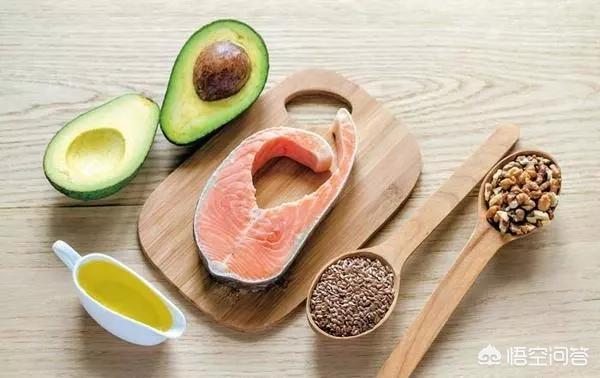
3.Dietary facts about diabetes
The diet of your diabetic friend is the key to diabetes treatment and must be taken very seriously.
Eat regular meals:Eat three meals a day, 4-6 hours apart, with about 2 taels of staple food at each meal. If the interval between meals is greater than 6 hours, there should be a small amount of nutrient-rich snacks. If you are thirsty, drink water.
A well-structured and nutritious diet;
Eat a light diet, low in salt and fat;
Take your medication on time;Thirst pills, euglycemic, glucophage, meperidine, and dalmecon should be taken half an hour before meals; metformin should be taken during or after meals; acarbose should be chewed with the first mouthful of meal at mealtime; and insulin should be injected subcutaneously with half an hour before meals.
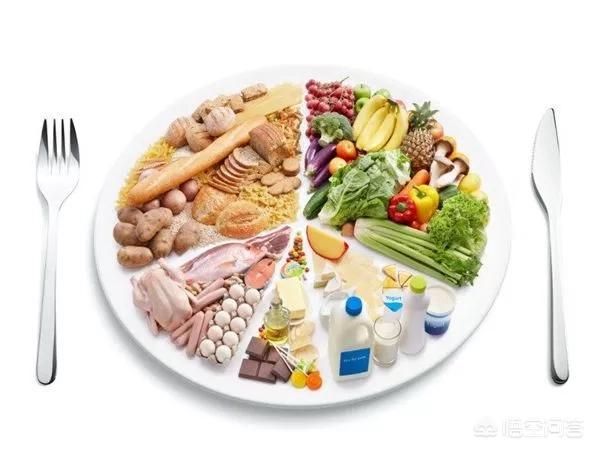
4.How to choose food for diabetic patients
To keep the total number of calories throughout the day within the prescribed limits, diabetics should not only control the staple food but also limit the side dishes. Vegetables can be eaten more often as they contain fewer calories. Fatty foods should be strictly limited and protein foods should be eaten in moderation. Carbohydrates, as the main source of human calories, should not be eaten in excess, but should not be too little, and should be controlled at more than 3 taels per day. However, sucrose, honey and other monosaccharides cause a rapid rise in blood sugar after eating, and can also lead to insulin insensitivity in the surrounding tissues, so they should be prohibited. Those who like sweets can use appropriate sweeteners: xylitol, aspartame, sweetener, etc. instead. Roughage in the staple food contains more fiber, the absorption of sugar is slow, so that the postprandial blood sugar is reduced. Diabetic patients should eat more oats, buckwheat, corn and other coarse grains and a variety of dry beans.
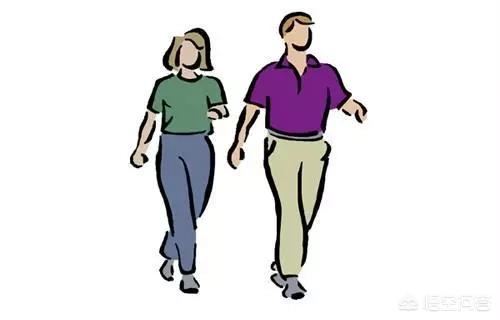
5.The dos and don'ts of exercise for diabetics
1. Exercise varies from person to person(Based on a variety of factors such as age, cardiorespiratory fitness and physical strength), diabetic patients should undergo a thorough and systematic examination before undergoing exercise therapy in order to decide on the type of exercise therapy.
2. Exercise therapy requires a certain intensity and duration, and the intensity of exercise should follow the principles of individualization and gradual progression from light to heavy.
3. Pay attention to your own feeling during and after the exercise, such as serious breathing difficulties, dizziness, pallor and other phenomena, you should immediately stop the exercise and take bed rest as early as possible.
4. Pay attention to adjusting the amount of food and medication to prevent hypoglycemia. Exercise therapy should generally be carried out 1 hour after meals to prevent hypoglycemia. However, for obese patients, exercise before breakfast is conducive to weight loss. Exercise can reduce the need for hypoglycemic drugs, so the dose should be adjusted in time.
5. Pay attention to protection to avoid injury, especially foot injury.
6, exercise therapy should be consistent, daily exercise.
The above answers were provided by PSM Drug Safety Cooperative Alliance volunteer: Weipeng Lu, Department of Pharmacy, Union Hospital, Tongji Medical College, Huazhong University of Science and Technology!
"Happy little doctor" for your answer, happy to follow!
Today's treatment of diabetes advocates an integrated approach: diet, exercise, diabetes education, medication and self-monitoring of blood glucose are the five basic principles of treatment, also known as the "five horsemen".
1. Health education for people with diabetes. The aim of education is to reduce the cost of ignorance, increase knowledge about diabetes and acquire methods of diabetes self-management; diabetes education requires close cooperation between patients and their families; and diabetes education can help to reduce and delay the onset and progression of chronic complications of diabetes.
2, dietary treatment is important. The first principle of diabetes dietary treatment is the total calorie control, staple food, side dishes, cooking oil should be controlled, the calories can not be too much, at the same time, reasonable meal preparation, that is, do not eat too much animal food, there should be an appropriate amount of carbohydrates, fats and proteins. No less than three meals a day, not more than two taels a meal. High fiber diet and list diet.
3. There are ways to treat exercise. Regular exercise can increase insulin sensitivity, help control blood sugar, reduce cardiovascular risk factors and reduce weight. The principle of exercise treatment should pay attention to individualization, safety, starting from a small amount and gradually increasing.
4, blood glucose monitoring is indispensable. Through blood glucose monitoring, it helps to understand the dynamic blood glucose changes in diabetic patients, which is conducive to the treatment and management of diabetic patients. Blood glucose monitoring generally includes blood glucose before three meals, two hours after three meals, before going to bed, 3:00 a.m. blood glucose. In addition, regular monitoring (generally about three months) of glycosylated hemoglobin, urine routine, liver and kidney function, electrocardiogram and fundus changes.
5, drug therapy is the foundation. type 2 diabetes drug treatment includes oral hypoglycemic drugs and insulin therapy. type 2 diabetes drug treatment can be used according to the condition of the ladder way of treatment, that is, the first with diet therapy and exercise therapy; Tao Shijiang Ebayi said that if the patient has been seriously practicing a healthy lifestyle for 2 to 3 months, the blood glucose level is not yet reached the standard, then the use of an oral hypoglycemic drugs, and according to the condition of the need for further combined oral hypoglycemic drugs, or oral hypoglycemic drugs combined with insulin therapy. Oral hypoglycemic drugs, or oral hypoglycemic drugs combined with insulin therapy.
Diabetes will be accompanied by lifelong, can not be cured, to all aspects of integrated treatment and attention, do not have to believe that the cure and medicine, generally now the society propaganda of the complete cure, no contraindication, etc. are cheating, the purpose is only one to earn money, often its methods and medicine in the magic will have western medicine ingredients.
At the same time have diabetes should not have too heavy psychological burden, through scientific treatment, diabetics can be the same as normal people, and will make you more concerned about health.
Diabetes has to be defied strategically and emphasized tactically.
Follow "Happy Little Doctor" to learn about medicine and live a healthy and happy life!
Thanks for the invitation to answer, diabetes is a lifestyle disease and there are indeed a lot of things that need to be taken care of in order to keep your blood sugar under control. Here's a brief summary for sugar lovers.
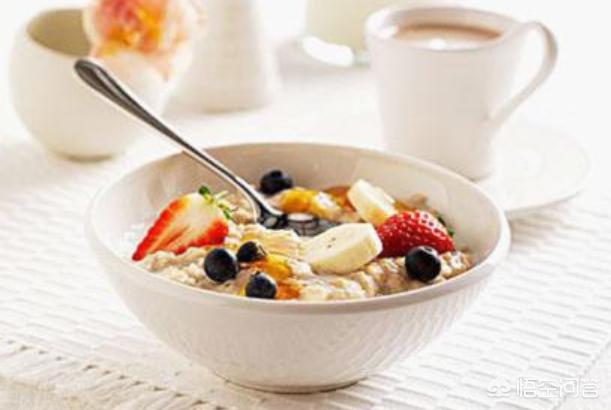
1. Don't eat a heavy diet.Foods that are heavy in oil and salt and too sweet in flavor are not suitable for sugar lovers. Sugar lovers should also not only focus on blood sugar, blood pressure and blood lipid control should not be neglected, because these two will also lead to increased blood sugar.
2. Protect against hypoglycemia.Sugar lovers whose blood sugar is lower than 3.9 mmol/L are considered to be hypoglycemic and should supplement sugary substances in time. Especially for sugar lovers with unstable blood sugar, it is better to measure blood sugar before going to bed to avoid nighttime hypoglycemia.
3. Pay attention to the way of cooking.Sugar lovers are advocated to cook at home because it can better control blood sugar. Cooking should be done in such ways as cold, steamed, stewed or boiled, not braised, fried or thickened, which will make the food high-calorie and raise the sugar level faster.
4. Learn to self-examine and protect your feet.Sugar lovers are advised to check their feet every day to see if there are any traumas, ulcers, uneven skin color, and to contact their doctor for treatment once any abnormality is detected. For shoes, make sure to choose comfortable and breathable ones, and do not walk barefoot at any time.
5. medication is administered on time and in accordance with the dosage.Follow the doctor's instructions, do not add or reduce medication without authorization, and do not blindly listen to others recommend changing medication, in order to avoid serious consequences.
Of course, in addition to these sugar users should pay attention to a lot of things, including some sugar control tips. Why don't you pay attention to the articles in the past issues of SugarManHealth.com, which have a lot of articles about diet and complications for sugar users?
Remember to like it when you're done.
There are 8 things to consider for diabetic patients:
1, very sweet fruit can not eat, such as lychee, longan, cantaloupe, etc., these fruits are easy to lead to large fluctuations in blood sugar, not conducive to blood sugar control. But not all fruits can not eat, such as bananas, oranges and other fruits that are not very sweet, sugar is not very high, you can still eat some in moderation.
2, diet control, exercise is the first treatment of diabetes, do not ignore the diet and exercise, many patients with early diabetes through diet control, exercise is able to kill the development of diabetes in the cradle. Even if you can't stop the progression of diabetes, you can stop the rate of progression.
3, do not be afraid of insulin, if the condition requires insulin, then bravely use insulin. Insulin is not a drug, insulin is not addictive, we use insulin, because we can not synthesize enough insulin, we need to supplement.
4, with insulin must not overdose, must be used under the guidance of a doctor, or use a large amount of hypoglycemia, it may be a tragedy. A serious attack of hypoglycemia is worth the benefits of previous years of blood sugar control, in other words, a return to the pre-liberation period.
5, carry cookies, chocolate, etc., in case of palpitations, hand tremors and other hypoglycemic reactions, it is timely to replenish some sugar, cookies and chocolate are available.
6, diabetic patients must protect their feet, prevent the occurrence of diabetic foot, wear shoes try to wear loose and comfortable, do not wear hard, chrome feet, some older people pain in the money, do not want to buy comfortable shoes to wear, children must pay attention to. Diabetic feet once infected, sometimes it is difficult to heal, and ultimately may have to face amputation may not be.
7, home should always have a blood glucose meter, often monitoring fasting, before and after meals, before going to bed blood glucose, to understand their own blood glucose levels, in order to better adjust the dose of medication, to avoid too high or too low blood glucose. Too high and too low are not good.
8, often go back to the hospital follow-up, more communication with the doctor, learn more about diabetes-related knowledge, armed with their own, in order to better and more reasonable control of blood glucose, to prevent the occurrence of related complications.
Diabetes mellitus is a metabolic disease caused by the relative or absolute insufficiency of insulin in the body, with elevated blood glucose as the main indicator, and may be accompanied by the symptoms of "drinking more", "eating more", "urinating more" and "weighing less". At the same time, it may also be accompanied by the symptoms of "more drinking", "more eating", "more urination", and "less weight", which are "three more and one less".
Well, if you have diabetes, you need to control your weight, watch what you eat, regulate your lifestyle, exercise, etc., but these are the two most important things:
I. Control of blood sugar
People with diabetes should be careful to control their blood sugar to the appropriate range. The right blood sugar is nutritious for the body, and too high or too low blood sugar is harmful to the body.

Fasting blood glucose should be controlled at 7.2 mmol/L, 2-hour postprandial blood glucose should not exceed 10.0 mmol/L, and glycosylated hemoglobin should be less than 7.0% in diabetic patients.
If you want to control your blood sugar well, you can do it according to the "five carriages" put forward by Prof. Xiang Hongding, a famous diabetologist - health education and psychological improvement, drug improvement, diet improvement, exercise improvement and blood sugar monitoring.
On the basis of reasonable arrangement of diet and exercise, then follow the doctor's advice to take oral hypoglycemic drugs, insulin injection.
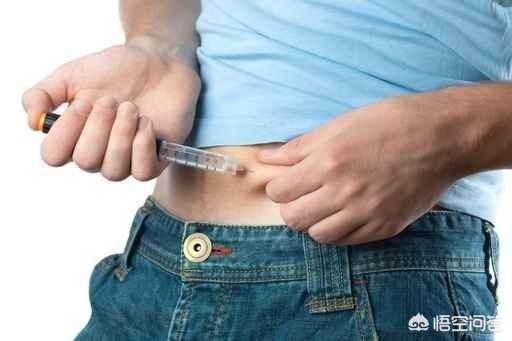
II. Prevention of complications
People often hear: diabetes is not scary, it's the complications that are scary.
Indeed, the danger of diabetes lies in the complications, which are categorized as acute and chronic.
Acute complications can be life-threatening if not handled appropriately, but can be treated properly. Common acute complications include acute infections, diabetic ketoacidosis, hyperglycemic hypertonicity, lactic acidosis, and hypoglycemia.
Chronic complications, unlike acute complications, occur and develop more slowly, but at a certain stage of development, they are difficult to reverse.

There are three main categories of chronic complications:
1. Macrovascular complications
Mainly hypertension, cerebrovascular, cardiovascular, and lower extremity vascular lesions.
2. Microvascular complications
Mainly renal lesions and fundus lesions.
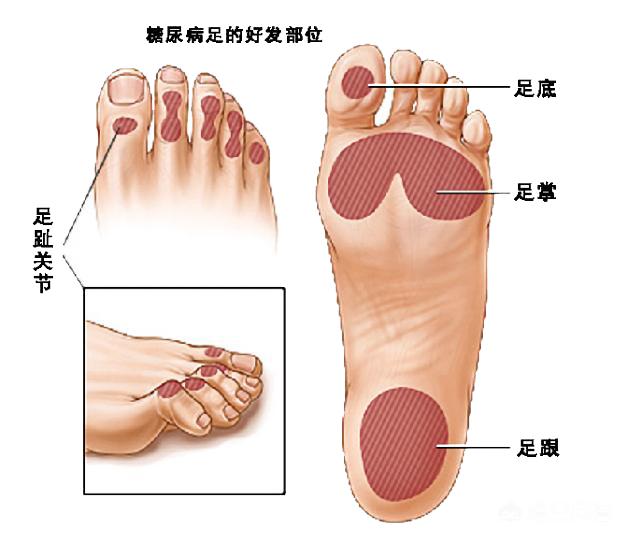
3. Neuropathy
Mainly sensory, motor, and autonomic neuropathy.
Prevention of diabetes complications can also follow the "five carriages" principle, so that diabetic patients' weight, blood glucose, blood pressure, blood lipids control to the appropriate range, to avoid or delay the occurrence or development of diabetes complications.

This question and answer are from the site users, does not represent the position of the site, such as infringement, please contact the administrator to delete.
